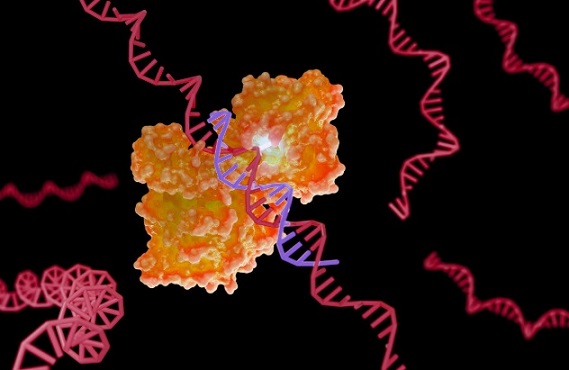Nikhil Prasad Fact checked by:Thailand Medical News Team Feb 15, 2025 2 months, 2 hours, 33 minutes ago
Medical News:
Understanding the Role of Defective Viral Genomes in Coronavirus Infections
Scientists from the Graduate Institute of Veterinary Pathobiology at National Chung Hsing University in Taiwan, along with researchers from the Department of Veterinary Medicine at National Pingtung University of Science and Technology, have conducted a groundbreaking study on how defective viral genomes (DVGs) affect coronavirus replication and immunity. Their findings provide new insights into how coronaviruses interact with host cells and may open doors to innovative antiviral treatments.
 Coronavirus Defective Genomes Influence Immunity and Viral Spread
What Are Defective Viral Genomes
Coronavirus Defective Genomes Influence Immunity and Viral Spread
What Are Defective Viral Genomes
Coronaviruses, including the virus responsible for COVID-19, are known for their ability to rapidly mutate and evolve. One of the lesser-known aspects of coronavirus biology is the formation of defective viral genomes (DVGs). These are incomplete or altered versions of the virus's RNA, which arise naturally during infection. Despite being defective, they can still play an important role in viral behavior and immune responses.
DVGs are produced when the virus's genetic material undergoes recombination or deletion, leading to shorter or modified viral genomes. Some of these DVGs can no longer produce functional virus particles, but they can still interact with the host's immune system. This
Medical News report highlights how these unique viral fragments influence the infection process.
Study Methods and Findings
To investigate the effects of DVGs, the researchers conducted experiments using human embryonic kidney (HEK-293T) cells infected with bovine coronavirus (BCoV). They studied two specific types of DVGs, labeled DVG 2.2 and DVG 5.1, which had been previously identified in coronavirus-infected cells. These DVGs were carefully introduced into cells, and their impact on immune response and viral replication was analyzed.
Key findings from the study include:
-DVGs influence the production of two important immune system molecules: interferon-beta (IFN-β) and ISG15 mRNA.
-Different DVGs have varying effects on coronavirus replication, with some inhibiting viral spread under certain conditions.
-The combination of DVGs at RNA and protein levels plays a role in regulating immune responses and controlling viral infection.
-DVGs may act as natural antiviral elements, slowing down coronavirus replication through immune activation.
The Immune Response Connection
The study showed that the presence of DVGs could trigger an immune response in infected cells. Specifically, when DVGs were introduced into cells, they led to an increase in IFN-β and ISG15, which are known for their role in antiviral defense. This means that while coronaviruses are trying to replicate, these defective genomes might actually be helping the body fight back.
Interestingly, different DVGs produce
d different levels of immune activation. Some of them strongly increased IFN-β and ISG15 levels, while others had a weaker effect. This suggests that not all DVGs work the same way, and their influence on immunity may depend on their structure and composition.
Potential for New Antiviral Strategies
One of the most exciting aspects of this research is its potential application in antiviral drug development. The study suggests that certain DVGs could be used as a natural form of antiviral therapy. Since these defective genomes can interfere with the virus's ability to replicate, scientists might be able to harness them to develop new treatments.
The findings also raise questions about whether DVGs play a role in long-term coronavirus infections. If certain DVGs can persist in cells, they might help the virus survive while keeping the infection under control. This could have implications for chronic infections and long-term immunity.
Expanding the Understanding of Coronavirus Pathogenesis
Beyond its potential medical applications, this research helps scientists better understand how coronaviruses evolve and survive in different conditions. The ability of coronaviruses to produce DVGs suggests that these viruses have developed complex mechanisms to regulate their replication and evade immune responses.
The study also supports the idea that coronaviruses may use DVGs as a way to adapt to different environments. When conditions are unfavorable, the virus might produce more DVGs that interfere with replication, allowing it to persist in the host without causing severe damage. This could be one reason why some coronavirus infections become chronic while others resolve quickly.
Conclusion
The study by Taiwanese researchers sheds light on the complex relationship between coronaviruses and their defective viral genomes. By demonstrating that DVGs can influence both immune responses and viral replication, the findings provide valuable insights into the mechanisms that drive coronavirus infections. This research suggests that DVGs could serve as potential targets for antiviral drug development, offering a new strategy to combat coronaviruses in the future.
As the scientific community continues to explore the role of DVGs, further studies will be needed to determine how these defective genomes can be effectively used in medical treatments. The ability to manipulate DVGs could lead to novel approaches in fighting not only coronaviruses but other RNA viruses as well.
The study findings were published in the peer-reviewed Virology Journal.
https://link.springer.com/article/10.1186/s12985-025-02654-5
For the latest on Coronavirus, keep on logging to Thailand
Medical News.
Read Also:
https://www.thailandmedical.news/news/there-is-no-such-thing-as-long-covid-sars-cov-2-exposure-causes-persistent-infections-along-with-continuous-presence-of-short-viral-rnas-svrnas
https://www.thailandmedical.news/news/breaking-medical-news-discovery-of-hidden-viral-proteins-in-ssrna-viruses-opens-a-new-dimension-in-virology-and-is-relevant-for-sars-cov-2
https://www.thailandmedical.news/news/breaking-covid-19-news-australian-scientists-discover-a-microrna-called-cov2-mir-o8-that-is-encoded-by-sars-cov-2-and-is-possibly-pathogenetic
https://www.thailandmedical.news/news/breaking-long-covid-is-a-misnomer-the-conditions-are-being-caused-by-viral-persistence-and-viral-peptides-similar-to-retrotransposons-and-introns
https://www.thailandmedical.news/news/breaking-covid-19-news-discovery-of-sars-cov-2-short-rnas-by-scientist-from-john-hopkins-is-a-big-gamechanger-in-terms-of-pathogenesis-and-long-covid
https://www.thailandmedical.news/news/breaking-news-scientists-discover-sars-cov-2-mirnas-that-contributes-to-pathogenesis-and-can-be-used-as-a-biomarker-for-covid-19-severity
https://www.thailandmedical.news/news/medical-alert-sars-cov-2-expresses-mirna:-vmir-5p-that-reduces-host-transcription-and-suppresses-host-genes,-increasing-its-pathogenicity
https://www.thailandmedical.news/pages/thailand_doctors_listings
https://www.thailandmedical.news/pages/thailand_hospital_listings
Follow us on:
https://x.com/ThailandMedicaX
https://www.facebook.com/ThailandMedicalNews
https://bsky.app/profile/thailandmedical.bsky.social
https://gettr.com/user/thailandmedicalnews
https://www.tribel.com/thailandmedical/wall
and 33 other social media platforms
